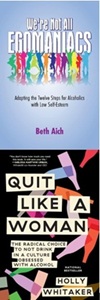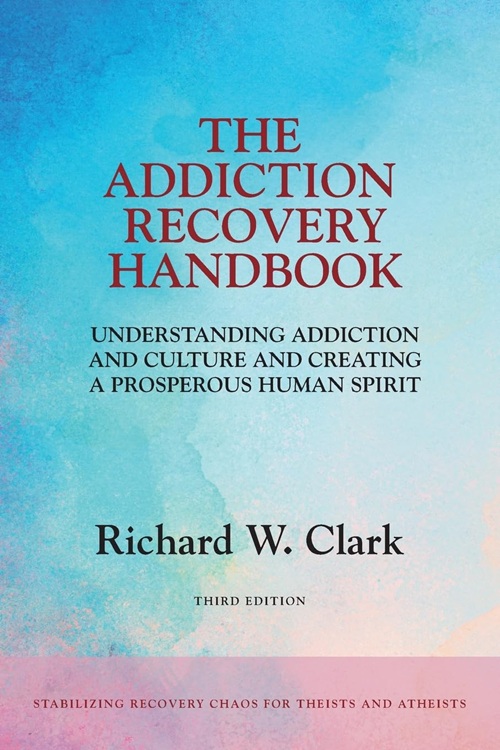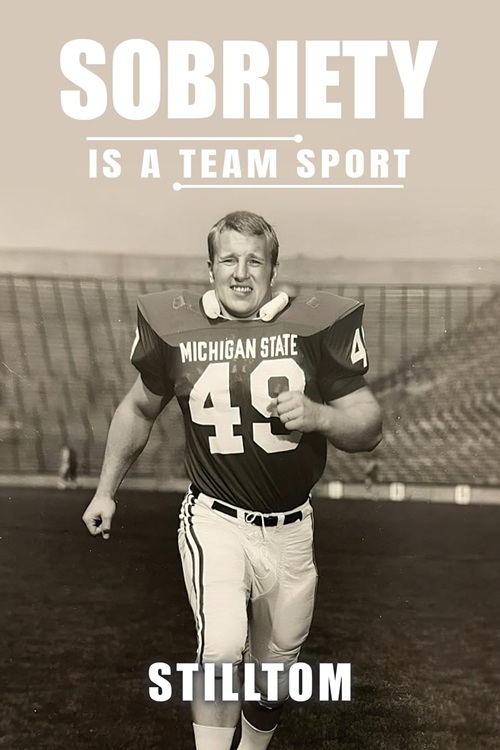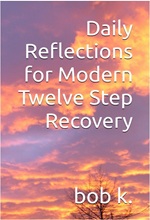By John M.
The world has been enchanted for a very long time. It’s not supposed to be this way, as we were told quite a long time ago by theories of secularization. According to these theories, after the scientific revolutions of the 17th and 18th centuries, the realm of the supernatural was expected to have “died” for modern men and women. Natural law and the clear light of reason were anticipated to emerge victorious.
Jason Ānanda Josephson Storm’s, The Myth of Disenchantment: Magic, Modernity, and the Birth of the Human Sciences, demonstrates how mystical the world’s thinking still is. One striking statistic he presents is that approximately three-quarters of Americans believe in ghosts, telepathy, witches, demonic possession, or something similar.
Today, religious individuals are quite pleased with the fact that secular societies have not fully separated themselves from religion. This sentiment is particularly strong in Alcoholics Anonymous.
Perhaps, though, it’s closer to the truth that our religious members are simply much more vocal than the rest of the membership in asserting that the mysterious and miracle-working God of their understanding is truly the only one that has ever held credibility in AA.
Regardless of whether it’s the overwhelming majority of AA believers or a small group’s unwavering enthusiasm, the non-believer is constantly confronted with the undeniable fact that AA’s ambiguous relationship with religion is deeply ingrained in the very foundation of the program, from its inception!
I once spent some time counting the number of times the terms “Higher Power” and “a Power/power greater than ourselves” were used in the Big Book. My initial reading of the Big Book had led me to think of various naturalistic and secular ways a “power greater than me” could be used. Had I missed or repressed all this “Higher Power” stuff?
No, it turns out I hadn’t because the Big Book only mentions “Higher Power” twice, while “a power greater than ourselves” or “myself” is used 23 times. (Higher Power is frequently used in the 12 & 12, published 14 years after the Big Book.)
So, here I was, a relatively new member of Alcoholics Anonymous, ready to share (or correct) anyone who would listen that the concept of a “power greater than” should be the orthodox approach and therefore a secular power is easily conceived. I explained that “Higher Power” was merely an expression that gained traction within the fellowship over time, similar to how “disease” attained acceptance over time with the fellowship but is used only once in the Big Book as a metaphor, referring to “spiritual disease.”
The sole problem with my line of reasoning was that the term “God” appeared an inordinate number of times in the Big Book. So much for a convincing argument gesturing toward a secular approach!
Drat! Who cares to admit complete defeat? A Higher Power, though not literally spelled out more than twice in the Big Book, was otherwise referenced as “God” on almost every page of that God-intoxicated text!
So, I learned early in my sobriety that there’s no way around the “religion debate” in AA.
Naturally, as secular groups began to form and establish our autonomy within AA as outlined in the 12 Traditions, the debates seem to have grown exponentially, aided, of course, by the Internet.
Lately, I’ve been spending more and more time reading numerous posts and responses on both secular and traditional AA websites.
On the secular sites, the debates, mostly among ourselves, often revisit the issue of how to handle our fellow recovering alcoholics whose AA message has taken on a distinctly religious (usually Christian) tone. Still, it’s been my experience that secular members online generally respect everyone’s right to use their own religious beliefs to stay sober. Ultimately, all recovery is a cause for celebration!
Most secularists simply advise our religious members against imposing their beliefs on us. Regarding AA’s traditional literature, many online respondents often just say, “take what you like and leave the rest behind.” Other individuals say they “translate” the religious language found in AA into social scientific or natural scientific concepts. They also note that they “de-God” (or “degawd,” if you prefer) the God-language in the Big Book, the 12 & 12, and other AA literature to essentially “save” the text from its supernatural leanings. Finally, there is a good core of recovered alcoholics who simply don’t read any of the literature, don’t follow the Steps, and don’t “work” the program. For them, the community of their fellow alcoholics is what got them sober and helped them recover.
So, at what point do we decide whether to complain about or disregard the religious aspects of AA or wherever else we encounter religious beliefs in the individuals we read, listen to, or interact with? I’ll mention one of our recovered secular alcoholics (with tons of sobriety) who is quite open about his disdain for the religious elements of AA. Recently, he expressed that he still holds a great deal of respect and admiration for the Christian poets, John Donne and William Blake. At what point, however, does he cut these two authors “some slack” regarding their religious beliefs but nevertheless he is unable to do the same with AA literature? (I’m intrigued about this, by the way, and not at all judgmental.)
I’m particularly curious about how secular individuals cope with the religious aspects of AA. What are the boundaries that permit the disregard of religious elements, such as “filtering” out religious discussions to extract beneficial principles, even though the concept of God is mentioned? Yet, is there a point where the religious content in AA becomes poisonous to the overall message?
To further examine the concept of secular toleration for religious expression in Alcoholics Anonymous, I propose a thought experiment or perhaps a “litmus test” to identify what religious content is deemed unacceptable by certain individuals and what can be considered harmless and irrelevant. This approach would allow for the appreciation of other basic principles and values, regardless of the religious context. For instance, in the works of poets like John Donne and William Blake, or any other religious poet one likes, what aspects of their poetry can be cherished and appreciated without considering their theological beliefs?
The “litmus test” I want to use is an extract from a sermon that appears in a film many of you may have seen called A River Runs Through It. It’s based on a semi-autobiographical story by Norman Maclean about growing up in early 20th-century Montana with his younger brother, mother, and Presbyterian minister father. His younger brother, Paul, an alcoholic and gambling addict,* shares a love for fly-fishing with their father, and much of the story revolves around their shared passion for fishing, the grandeur of the great outdoors, and reflections on the brothers’ aspirations for their futures.
[Spoiler alert] Tragically, by the story’s end, Paul is brutally beaten to death and the final scenes delve into how Norman, his mother, and father grapple with making sense of Paul’s life and death.
The part of the film that particularly captivates me is an extract from the movie featuring a sermon preached by their minister father sometime after Paul’s murder. I was deeply moved by the poignancy of the extract when I first watched the Robert Redford-directed film and recall having essentially the same question that I will pose for you after presenting the father’s text below:
Each one of us here today will at one time in our lives look upon a loved one who is in need and ask the same question: We are willing to help, Lord, but what, if anything, is needed? For it is true we can seldom help those closest to us.
Either we don’t know what part of ourselves to give or, more often than not, the part we have to give is not wanted. And so it is those we live with and should know who elude us.
But we can still love them – we can love completely without complete understanding.
So, here’s my question: is this a religious address? It’s from a sermon delivered by a Presbyterian minister on a Sunday morning in a church to a congregation of Christian worshippers. The word “God” is mentioned only once, and referred to as “Lord.” However, a significant portion of the text could be interpreted without the specific context of a Christian church on a Sunday morning.
Still, for the sake of comparing AA to this homily, let’s assume that this passage is indeed religious, given its Christian setting during a Sunday morning service.
If we consider Alcoholics Anonymous as a whole, this short scene, I’ll admit, has some limitations in comparison. The Big Book, as we know, employs a substantial amount of “God-language,” while this short homily uses “Lord,” only once. Given the sheer number of times God is referenced in the Big Book, it is obvious to many of us that the Big Book is at least a quasi-religious text, even though AA itself claims to be spiritual, not religious. Yet, this address is more of an open question regarding its apparent religiosity.
So why do I still want to compare the Big Book and this homily? I believe what distinguishes them is what makes them different.
When comparing the Big Book (or even just the 12 Steps) with the minister’s sermon from the film, the Big Book clearly outlines its otherworldly and transcendent belief structure by asserting that “probably no human power could have relieved us of our alcoholism” and “that God could and would if He were sought.” (And these are just two of many such assertions about God’s power throughout AA literature.)
The message in the sermon, however, emphasizes the human-centred and interpersonal nature of helping, indicating that it comes from other people or loved ones (if accepted). This perspective could be presented by almost any secular professional in the counselling community.
Despite the contrasting sizes of AA literature and this short homily, comparing these two sources side by side highlights something else crucial about what secularists, I suspect, will tolerate (or not) when confronted with a religiously saturated text or community.
Many texts are intentionally structured with ambiguities, and “tensions” between contrasting terms are common in literature. For instance, consider the 12 Steps. We have God contrasted with men and women; the power of God contrasted with human power; God’s will versus human will; and God’s perfection compared to human defects and shortcomings.
So, it may not be the sheer frequency of mentions of God or a Higher Power in the Steps, the Big Book, or other AA literature that matters, but rather the fact that in the “tension” between contrasting terms, God simply (and infuriatingly, for us) overpowers the human realm. God becomes the supreme term in the text, overshadowing the simple human concepts of responsibility, will, agency, and the act of helping others. While human power to act and the notion of responsibility are certainly present in the Big Book, people are ultimately overshadowed by the divine and subsumed under the authority of God’s transcendent majesty and mystery. Religious metaphysics dominates the all-too-human existential reality of people living out their lives in families, groups, and communities.
The Big Book both suggests and trivializes making the group one’s higher power by asserting, “[s]urely you can have faith in them [the group]. Even this minimal will be enough.” Secularists, however, understand that in much of 20th-century philosophy and psychology, interpersonal, existential relationships, such as mutual recognition and reciprocity between people, or the necessity to be “seen” and “affirmed,” are the very essence of human well-being and should not be downplayed or minimized.
It’s easier to live with the supernatural beliefs of a religious text when it accurately portrays the dynamics of interpersonal relationships as the result of human agency rather than divine will or God’s direct intervention. By decentering God and focusing on the human, a text becomes more straightforward for us to justify its other positive qualities, such as making amends, overcoming resentments, and helping others, etc.
Coupled with the action of “de-Godding” the text, this is how those of us defending the merits of the Big Book and other AA literature are able to “save” the program for a secular approach while simultaneously defending it even from our fellow atheist and agnostic skeptics who, at times, appear unwilling to “cut AA some slack.”
We do, however, understand our fellow secular skeptics and empathize with their perspective. Many of them affirm that they achieved sobriety without resorting to the Steps and the Big Book. Instead, they found solace and support in the fellowship, where they engaged in mutual assistance with fellow alcoholics and friends, which played a crucial role in their recovery.
It seems to me that the closer the alcoholic approaches the existential, interpersonal, and profoundly grounded essence of humanism, the more deeply rooted and realistic he or she becomes, which has consistently proven to be the cornerstone of any successful recovery program, including traditional AA (viewed from a secular perspective, that is).
Perhaps that’s the rawest testimony about the underlying effectiveness of secular Alcoholics Anonymous: the closer you get to the existential focus of person-to-person interaction and alcoholics staying grounded and focused on very real human capacities, not only do we recover, but the more patient we become with the religious orientation of traditional AA.
The only exception to this patience and tolerance is with the AA dogmatists who threaten and harangue our fellow alcoholics with the lie that they can’t get sober, and stay sober, without God.
This is especially so when we come across the newcomer to sobriety who desperately wants to get sober, is afraid of relapsing, and terrified of a future without alcohol. They’re vulnerable, and fragile, and easily intimidated in early sobriety. The last thing a non-believing newcomer needs to hear is that recovery from their alcoholism is dependent on a belief in God. In short, it’s just another thing to scare someone out of an AA meeting and back into their alcoholism.
The “vulnerable” individuals should always be the focus of why we secularists resist the religious bias present in AA literature and counter the proselytizers trying to evangelize their one-dimensional message in the rooms of AA. That sin against the spirit, in Christian parlance, is unforgivable!
Please note that I don’t believe there can be an objective answer to the title of this article. How an atheist or an agnostic tolerates religious expression is highly subjective and depends on numerous factors. I’m simply sharing my impressions of what others in both secular and traditional AA formats have conveyed about religious expression within the fellowship over the nearly 18 years of my sobriety.
* It’s more apparent in the novella than in the film that Paul has major problems with alcohol and gambling.
John is 71 and got sober in 2007 at the age of 54. Twenty-one days at the Renascent Treatment Centre in Toronto kickstarted his journey of continuous sobriety into the present day. He really only took AA seriously when he heard speaker after speaker say that they never felt comfortable in their own skin long before they took their first drink. In John’s opinion, the key to both physical and emotional sobriety is the acknowledgement in the Big Book: “Our liquor was but a symptom. So we had to get down to causes and conditions.” (p. 64).
John served as a General Service Representative (GSR) for his first home group and then for his secular home group, which he and a few others started north of Toronto in 2012.
He has written a few articles for AA Agnostica over the years and is always happy to support this website.
For a PDF of today’s article, click here: To What Extent Do We Tolerate the Religious in Secular AA.
The post To What Extent Do We Tolerate the Religious in Secular AA? first appeared on AA Agnostica.
 The world of the self-publishing era tells a story different from the “one size fits all” message. In
The world of the self-publishing era tells a story different from the “one size fits all” message. In 

 Richard Clark has been clean and sober since September 1980 and has always been open about his atheism. He is now sober 44 years with no relapses, active in his weekly agnostic meeting, and never concealed his atheism. Professionally, Richard has been a therapist in addictions work since 1985. For several decades he’s been committed to the ancient Buddhist stream of Arhat consciousness and been recognized as a Pratyeka-buddha, pre-Theravada practise (and still working at it). He offers on-line private counselling sessions with clients from across Canada. Richard has written three books and is presently writing a fourth book detailing the psychology of Buddhism, the healthy psychology of atheism, and therapy for counsellors and addicts. There is more information about him at
Richard Clark has been clean and sober since September 1980 and has always been open about his atheism. He is now sober 44 years with no relapses, active in his weekly agnostic meeting, and never concealed his atheism. Professionally, Richard has been a therapist in addictions work since 1985. For several decades he’s been committed to the ancient Buddhist stream of Arhat consciousness and been recognized as a Pratyeka-buddha, pre-Theravada practise (and still working at it). He offers on-line private counselling sessions with clients from across Canada. Richard has written three books and is presently writing a fourth book detailing the psychology of Buddhism, the healthy psychology of atheism, and therapy for counsellors and addicts. There is more information about him at 

